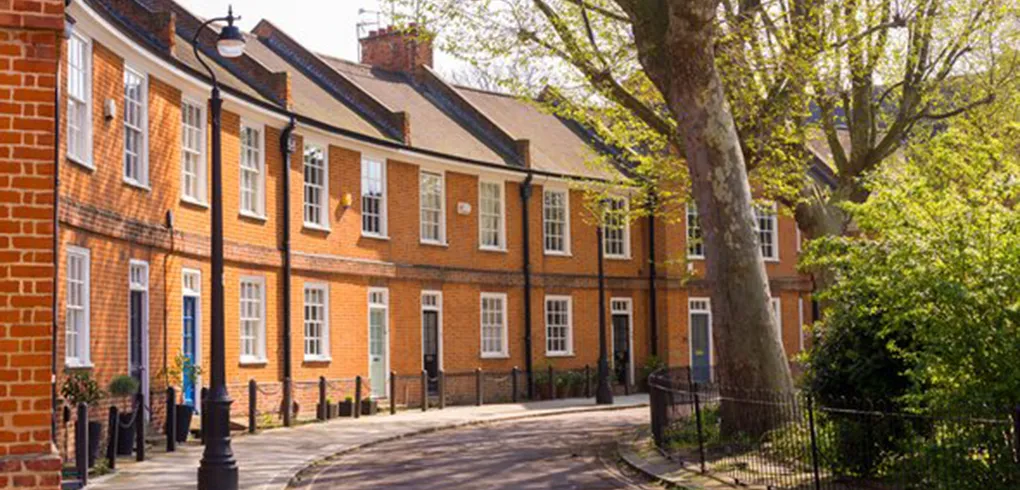We take care of everything
With 50 years of service, we’ve seen it all. We can save you money, time and make remortgaging your property easy.

Thinking whether to remortgage or not? Find out our 9 reasons why you should consider remortgaging your home. You can save a lot of money on remortgaging, so make sure you get the best deal.
Fill out this enquiry form and we’ll contact you to book a free call with one of our mortgage experts.
"*" indicates required fields

People usually remortgage to save money, release equity or to accommodate a change in circumstances. There are many different situations in which each of these options can be desirable, which is why we’ve broken down our top 9 reasons to remortgage your home.
A remortgage is when you take out a new mortgage on a property where you already have an existing loan or own it outright.
There are 2 ways to remortgage – you can either switch to a new mortgage lender or move onto a different mortgage deal with your existing provider. Whichever route you take, there are many valid reasons to remortgage.
Check out our top 9 reasons to remortgage your home today.
You can also compare the best remortgage deals with our best buys tool.
The mortgage market is highly competitive in terms of available interest rates, so by switching mortgage lenders or moving to a better deal, you could significantly reduce your monthly mortgage payments. Switching to a different lender may involve paying an exit fee or an ERC (early repayment charge) to your current provider. However, any additional charges may be worth it compared to the amount of money you could save by remortgaging to a better rate.
If your existing mortgage is nearing its end, you will need to find another mortgage. The best mortgage deals usually only last for 2 to 5 years and come with various incentives such as a tracker, fixed rate, or discount mortgage. When your time is up, most lenders will automatically move you on to their SVR, which usually carries a higher interest rate and costs more than other options available. This is a great reason to remortgage to a cheaper rate.
It’s common for people’s circumstances to change. For example, you may get a better job with a higher salary and wish to make overpayments on your mortgage, or you may want to switch to an interest only or offset mortgage to free up capital. This is a great reason to remortgage, as it allows you greater flexibility to switch to a mortgage deal that better suits your current financial situation.
If the value of your property has increased over time, it may be worth remortgaging. If this is the case, you may find your home has a more favourable LTV (loan-to-value), which opens up many more options. Remortgaging to a new deal can ensure you get much lower rates and free up cash to put towards paying off your mortgage, other debts, or perhaps fund home improvements.
Consolidating debt has become a common reason to remortgage. If you have credit card debt or short term loans across several different lenders, you can raise money by remortgaging to pay off these debts, leaving you with just one monthly payment. Remortgaging for debt consolidation will reduce how much interest you pay on your total debt, saving you thousands in the longer term. This can also help you recuperate any damage to your credit score.
If you’re divorcing or splitting from your partner, remortgaging could raise the money you need to buy out your ex-partner, depending on your ability to afford the mortgage on just your income. Remortgaging for divorce can also help you secure a deal with a better rate and lower, more affordable monthly payments.
Remortgaging enables you to borrow more money against your home. If your home’s value has increased since you took out your original mortgage, your equity will have increased too, meaning you can increase your mortgage amount. You can use this extra money for home improvements, funding a new business venture, or putting it towards your children’s university education.
One of the top reasons to remortgage your home is to pay off your mortgage sooner, so you’ll be mortgage-free. Not many mortgage providers will allow you to overpay on your mortgage, and those that do may charge you to do so. If paying off your mortgage quicker is your goal, then remortgaging to a new deal with low or no overpayment charges is a good solution.
Rising interest rates can increase the overall cost of your mortgage, especially if you’re on a tracker mortgage. If you’re worried about rates rising in the future, remortgaging could help you find a lower fixed rate mortgage.
The costs of a remortgage will depend on the amount you need to borrow, the type of mortgage, the interest rate you agree to pay, how long the term of the loan is and the fees you are charged when setting it up.
Find out how much you could save to help you find the best remortgage rates for your property with our mortgage calculator below. We also have other mortgage calculators such as one for mortgage overpayments.
| Current monthly payment: | |
| New monthly payment: | |
| Potential monthly saving: | |
| Potential annual saving: |
Calculating your savings
Using the information entered, this mortgage deposit calculator works out how much you’ll need to save each month to reach your deposit goal.
First it works out how much deposit you’ll need based on the prospective property price and percentage of deposit needed.
Then it calculates how to get to this goal by the date required based on your current savings and their gross interest rate.
Finally, it divides this by the number of months between now and the date you require your deposit.
Speak to our team for a free consultation and more advice on what you can borrow.

It’s essential to monitor your current mortgage and keep an eye on the market. Regular mortgage reviews can help you identify opportunities to save money or improve your loan terms. Start considering a remortgage when:

Book an appointment with an adviser today and we’ll help you work out which mortgage deal is best for you and your requirements.